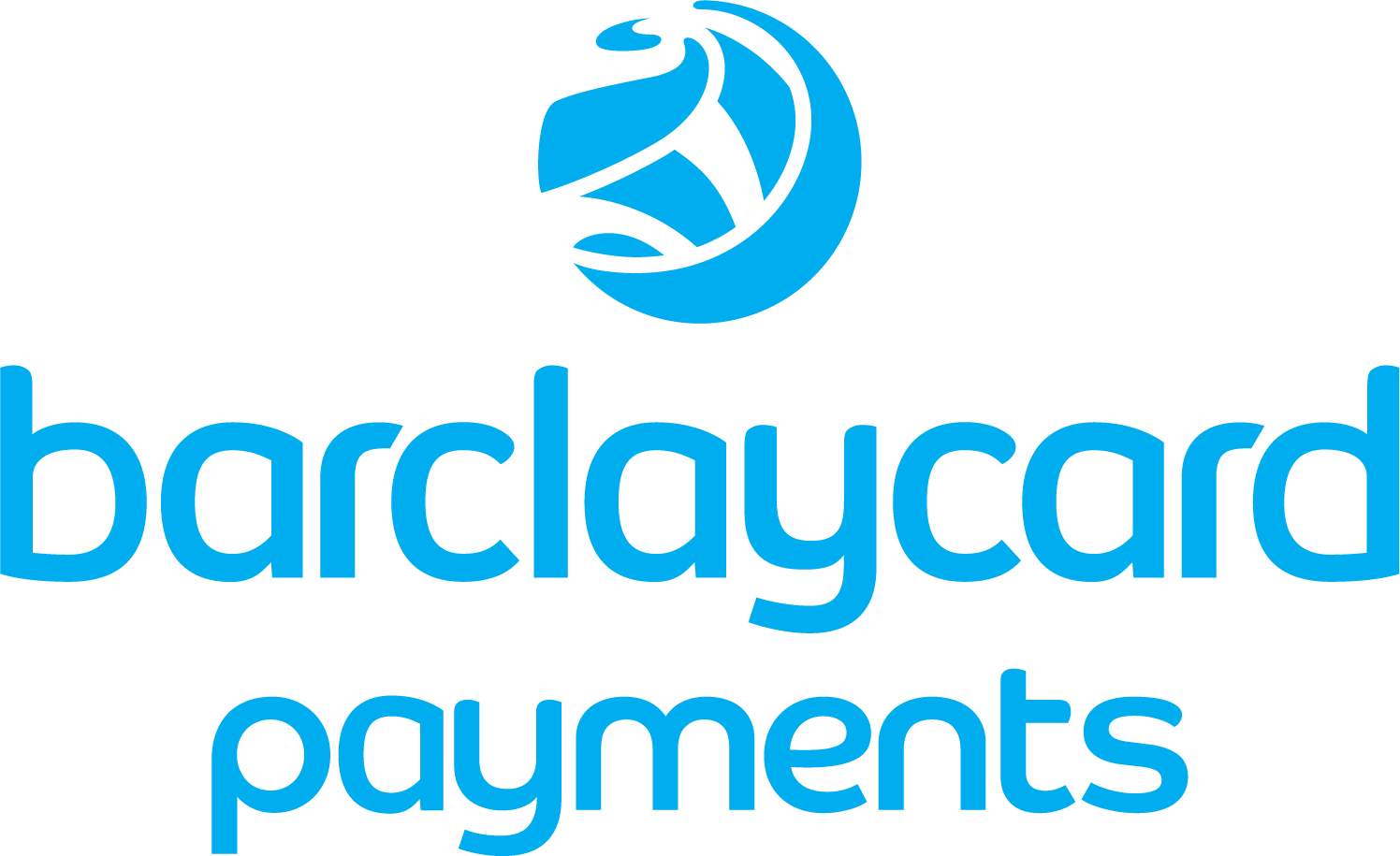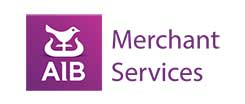- Accept card payments – lowest rates from 0.27%
- Keep your card processing fees to a minimum
- Direct access to the UK’s leading card processing banks
- We ensure your rates always remain competitive
No spam emails or calls
Choose from the payment methods then click Next
What's your turnover each month?
Enter the name of your company
Enter your company's postcode and contact number
Tell us what you need
Fill in our quick form and we’ll give you a call for a brief 5-minute chat to understand exactly what you're looking for.
Get tailored quotes
We’ll match you with up to three of the most competitive offers from our trusted providers that suit your business.
Pick with confidence
We’ll help you understand the options so you can choose the best fit — quickly, clearly, and without any pressure.






Merchant Acquirers
Merchant Acquirers
Understanding UK Acquirers: A Complete Overview
Reporting and Business Management Tools from Acquirers
Reporting and business management tools offered by acquirers play a pivotal role in enabling small businesses to gain insights into their payment processing operations and make informed financial decisions. These tools typically provide comprehensive reporting capabilities that allow merchants to track transaction volumes, sales trends, and revenue patterns over time. By offering real-time analytics, acquirers empower businesses to monitor their performance and identify opportunities for growth. For instance, merchants can access detailed reports on transaction history, chargebacks, and customer preferences, equipping them with essential data needed to refine marketing strategies and optimize inventory management. Additionally, many acquirers include user-friendly dashboards that consolidate key metrics, enabling small businesses to visualize their financial health and streamline operations. By integrating these reporting and business management tools into their workflow, merchants can effectively manage cash flow, assess pricing strategies, and ultimately enhance profitability, all while focusing on delivering exceptional customer experiences.

Customer Service & Support from Merchant Acquirers
Customer service and support from merchant acquirers are essential components in fostering successful and lasting relationships with small businesses. As payment processing can often be complex and filled with potential challenges, having access to dedicated support ensures that merchants can efficiently address any issues that may arise. Many acquirers provide multi-channel support, including phone, email, and live chat options, allowing businesses to reach out at their convenience. This immediacy in assistance helps merchants resolve payment discrepancies, navigate technical difficulties, and obtain guidance on integrating new payment solutions into their existing systems. Furthermore, proactive customer service — including regular check-ins and personalized attention — empowers merchants to leverage their payment processing tools effectively and adapt to their evolving needs. By prioritizing customer service, acquirers not only enhance merchant satisfaction but also contribute to smoother operations and increased trust in the payment ecosystem, ultimately positioning merchants for continued growth and success in their respective markets.
Merchant Onboarding Process
The merchant onboarding process is a critical step for businesses looking to establish a relationship with merchant acquirers and start accepting payments. This process begins with the merchant submitting an application, where they provide essential documentation, such as business licenses, financial statements, and identification. Acquirers assess the application to ensure compliance with industry regulations and evaluate the potential risk associated with the merchant. Once approved, the onboarding typically involves setting up the merchant account, which includes assigning account credentials and configuring payment processing tools like gateways and terminals. Education is a key component of this process, as acquirers often provide training resources to help merchants understand how to use their payment systems effectively. Furthermore, an essential aspect of onboarding is ensuring robust compliance with PCI DSS standards, ensuring that the merchant maintains the highest level of security when handling customer data. Overall, a smooth onboarding experience is vital, as it not only accelerates the time to market for businesses but also lays the foundation for a successful partnership between the merchant and the acquirer.
Questions to Ask When Choosing a Merchant Acquirer
When selecting a merchant acquirer, it’s vital for businesses to ask the right questions to ensure they make an informed decision that aligns with their specific needs. First and foremost, inquire about the transaction fees and additional costs associated with their services; understanding all potential charges will help businesses assess the financial implications of working with a particular acquirer. Additionally, consider asking about the types of payment solutions they offer, including support for mobile payments, recurring billing, and international transactions, as these features can greatly enhance operational flexibility. It’s also important to discuss the level of customer support provided; having access to responsive support channels can make a significant difference when issues arise. Further, ask how the acquirer approaches security and fraud prevention to ensure that customer data will be well-protected. Finally, request information about the onboarding process—knowing how long it will take to set up and start accepting payments can help businesses plan accordingly. Addressing these questions will empower merchants to choose an acquirer that best suits their business model and growth objectives.
Small Business-Specific Payment Solutions & Needs
In the fast-paced world of commerce, the ability to accept payments seamlessly at the point of sale is crucial for businesses of all sizes. Whether it’s a small business selling handmade crafts or a multinational corporation processing thousands of transactions daily, the role of merchant acquirers is indispensable. In the UK, acquiring banks and payment processors play a pivotal role in enabling businesses to process payments efficiently, securely, and cost-effectively. This essay explores the functions of merchant acquirers, their importance in the payment ecosystem, and how they help businesses thrive in an increasingly digital economy.
Merchant Acquirers
What Are Merchant Acquirers?
Merchant acquirers, also known as acquiring banks or simply acquirers, are financial institutions or payment processors that enable businesses to accept payments from customers. They act as intermediaries between the merchant’s account and the customer’s card issuer, the cardholder’s bank (issuing bank), facilitating the transfer of funds during a transaction. In the UK, merchant acquirers work with card networks like Visa, Mastercard, and American Express to ensure that payments are processed smoothly.
When a customer makes a purchase using a credit card or debit card, the acquirer steps in to authorise the transaction, verify the cardholder’s account, and ensure that the funds are transferred from the cardholder’s bank to the merchant’s bank. The cardholder’s account plays a crucial role in this process, as it is managed by the issuing bank to authorize transactions, manage funds, and ensure that there is enough money available to complete the purchase. This process involves multiple steps, including fraud detection, security protocols, and dynamic currency conversion for international transactions. The merchant’s account is equally important, as it is managed by acquiring banks to ensure that funds are deposited correctly and transactions are secure. Merchant acquirers handle the complexities of payment frequencies and fraud risks, ensuring compliance with industry standards, particularly in contexts like online transactions in sectors such as travel. Without merchant acquirers, businesses would struggle to accept payments, especially in an era where online payments and alternative payment methods are becoming increasingly popular. The main entities involved in the UK card acquiring process are the cardholder, the merchant, the merchant acquirer (acquiring bank), the issuing bank, and the card network (such as Visa or Mastercard), which facilitates communication and transaction settlement between banks.
The Role of Acquiring Banks in the UK
Acquiring banks in the UK are at the heart of the UK payments processing ecosystem. They provide the infrastructure and services necessary for businesses to accept credit card payments, debit card payments, and other forms of electronic payments. These banks work closely with payment gateways, payment processors, and independent sales organisations to offer a comprehensive suite of merchant services.
One of the primary functions of an acquiring bank is to manage the merchant’s account, which is where funds from card transactions are deposited. The acquirer also handles transaction fees, processing costs, and other fees associated with payment processing. For businesses, choosing the right merchant acquirer is critical, as it can impact transaction costs, authorisation rates, and the overall efficiency of their payment solutions. To become a legal payment acquirer in the UK, you must obtain authorisation from the Financial Conduct Authority (FCA) as a payment institution or electronic money institution. This process typically involves fulfilling anti-money laundering requirements, demonstrating operational capability, providing a comprehensive business plan, and maintaining a minimum capital threshold as specified by the FCA. Additionally, you must establish relationships with card networks such as Visa and Mastercard to legally process card payments on behalf of merchants.
UK merchant acquirers are known for their competitive rates and value-added services, such as fraud prevention tools and in-store payment solutions, which prioritize ease of use. These services are particularly important for small businesses, which may lack the resources to implement robust security protocols or negotiate lower fees with card networks. By partnering with a reliable acquirer, businesses can focus on growing their operations while leaving the complexities of payment processing to the experts.
Types of Merchant Acquirers
Merchant acquirers come in various forms, each catering to different business needs and sizes. Understanding the types of merchant acquirers can help businesses choose the right partner for their payment processing needs, including payment processing fees.
-
Traditional Acquirers : These are well-established banks and financial institutions that have been providing merchant acquiring services for many years. They offer a wide range of payment solutions, including credit card payments, debit card payments, and other electronic payment methods. Traditional acquirers consolidate sales channels and have a strong network of merchants, being known for their reliability and comprehensive service offerings.
-
Fintech Acquirers : In recent years, technology-driven companies have entered the payment processing space, offering innovative solutions and competitive pricing. These fintech acquirers leverage advanced technology to provide seamless financial services and payment solutions, often integrating with other financial tools and platforms. They are particularly attractive to businesses looking for cutting-edge payment solutions and lower transaction fees. If you are looking for an official list of merchant acquirers operating in the UK, the Financial Conduct Authority (FCA) maintains a public register on its website, listing authorized payment institutions and merchant acquirers. This resource is regularly updated and can provide detailed information about the companies operating in the UK market.
-
Independent Sales Organizations (ISOs) : ISOs are third-party companies that act as intermediaries between merchants and acquirers. They provide sales and customer support services, helping businesses set up and manage their merchant accounts. ISOs often work with multiple acquiring banks, giving merchants access to a variety of payment processing options and competitive rates.
-
Payment Facilitators : These companies provide payment processing services to merchants without holding a direct relationship with the card schemes. Payment facilitators offer simplified payment solutions from various merchant service providers, making it easier for small businesses and startups to accept payments. They often provide competitive pricing and streamlined onboarding processes, making them an attractive option for businesses looking to get up and running quickly.
How Merchant Acquirers Facilitate Global Payments
In today’s interconnected world, UK businesses are no longer confined to their local markets. With the rise of e-commerce and global payments, merchants are increasingly looking to expand their reach and cater to customers in multiple currencies. Merchant acquirers play a crucial role in enabling this expansion by offering payment solutions that support international transactions.
For example, dynamic currency conversion allows customers to pay in their local currency, while the merchant receives funds in their preferred currency. This not only enhances the customer experience but also reduces the risk of currency fluctuations. Additionally, acquirers like Lloyds Cardnet work with card networks like Visa, Mastercard, and American Express to ensure that cross-border transactions are processed efficiently and securely.
However, international transactions often come with higher fees and hidden fees, which can eat into a merchant’s profits. This is where the expertise of a trusted acquirer comes into play, including support for digital wallets. By negotiating competitive rates and offering transparent pricing, acquirers help businesses minimise transaction costs and maximise their revenue.
How Merchant Acquirers Work
Merchant acquirers play a crucial role in facilitating card transactions between merchants and cardholders. Here’s a step-by-step look at how they work:
-
Merchant Application: The process begins when a merchant applies for a merchant account with an acquirer. The merchant provides necessary documentation and information, such as business details and financial history to comply with the relevant card scheme.
-
Account Setup : Once the application is approved, the acquirer sets up the merchant account. This includes providing the necessary payment solutions, such as payment gateways and card terminals, to enable the merchant to accept card transactions.
-
Transaction Processing : When a cardholder makes a purchase, the merchant submits the transaction to the acquirer for processing. This involves capturing the transaction details and sending them to the acquirer.
-
Authorization : The acquirer sends the transaction details to the card scheme (e.g., Visa, Mastercard) for authorization. The card scheme then communicates with the cardholder’s bank to verify the transaction. If approved, the card scheme sends an approval message back to the acquirer.
-
Settlement : After authorization, the acquirer settles the transaction by transferring the funds from the cardholder’s bank to the merchant’s account. This process ensures that the merchant receives the payment for the transaction.
-
Reconciliation : The acquirer provides the merchant with a statement of transactions, including fees and charges. This helps the merchant reconcile their accounts and understand the costs associated with payment processing.
How and Where Do Merchant Acquirers Fit Into the Payment Cycle?
The Importance of Fraud Prevention and Security
As the volume of online payments continues to grow, so does the risk of fraud. Merchant acquirers play a critical role in safeguarding businesses and their customers from fraudulent activities, particularly in line with payment card industry data security. Through advanced fraud detection systems and security protocols, acquirers help prevent unauthorised transactions and protect sensitive customer data.
Fraud prevention tools offered by acquirers include real-time transaction monitoring, address verification systems, chargeback management, and 3D Secure authentication. These tools not only reduce the risk of chargebacks but also enhance the trust payments ecosystem, ensuring that customers feel confident when making purchases.
For businesses, the cost of fraud can be devastating. Chargebacks, processing costs, and reputational damage are just a few of the consequences of inadequate fraud prevention measures. By partnering with an acquirer that provides a secure framework prioritising security, businesses can mitigate these risks and focus on delivering value to their customers.
Transaction Fees and Pricing
Merchant acquirers charge various fees for their services, which can impact a business’s bottom line. Understanding these fees is essential for selecting the right acquirer and managing transaction costs effectively.
-
Transaction Fees : These are typically a percentage of the transaction amount, ranging from 0.5% to 3.5%. Transaction fees are charged for each card transaction processed by the acquirer, and factors such as average transaction value can influence these rates.
-
Fixed Fees : In addition to transaction fees, acquirers may charge a flat fee per transaction. This fee often ranges from £0.10 to £0.30 and is applied regardless of the transaction amount.
-
Monthly Fees : Many acquirers charge a recurring monthly fee for the use of their payment services. This fee can range from £10 to £50 and covers the cost of maintaining the merchant account and providing ongoing support.
-
Interchange Fees : These fees are paid by the acquirer to the card scheme for each transaction. Interchange fees typically range from 0.2% to 2.0% and are a significant component of the overall transaction cost.
-
Scheme Fees : Similar to interchange fees, scheme fees are paid by the acquirer to the card scheme for each transaction. These fees usually range from 0.1% to 1.0% and contribute to the total cost of processing card transactions.
Merchants should carefully review the pricing and fees associated with a merchant acquirer before selecting a provider. It’s essential to consider the total cost of ownership, including transaction fees, fixed fees, and monthly fees, to ensure the best value for your business. By understanding these costs, businesses can make informed decisions and choose an acquirer that aligns with their financial goals.
The Evolution of Payment Solutions
The payment processing industry has undergone significant changes in recent years, driven by advancements in technology and changing consumer preferences. Traditional payment methods like cash and cheques are being replaced by digital payment solutions, including mobile payments, contactless payments, and alternative payment methods such as PayPal and Apple Pay, all of which are connected to a merchant’s account.
Merchant acquirers have adapted to these changes by offering innovative payment solutions, including card machines, that cater to the needs of modern businesses. For example, many acquirers now provide one platform that integrates payment gateways, fraud prevention tools, and value-added services. This allows businesses to manage all aspects of their payment processing on a single platform, streamlining operations and reducing complexity.
Fintech companies have also entered the payment processing space, offering competitive rates and cutting-edge technology, despite high fees. These companies often partner with acquirers to provide businesses with access to the latest payment solutions, such as in-store payment solutions and software company integrations. As a result, businesses can offer their customers a seamless payment experience, whether they are shopping online or in-store.
Payment Processors vs Merchant Acquirers
List of Top UK Merchant Acquirers
Choosing the Right Acquirer for Your Business
With so many options available, choosing the right acquirer can be a daunting task. Businesses must consider factors such as transaction fees, processing costs, and the range of services offered for their transaction volume. It’s also important to evaluate the acquirer’s reputation, customer support, and ability to handle high volumes of transactions.
For small businesses, working with an acquirer that offers competitive rates and transparent headline rates pricing is essential. Hidden fees and higher fees can quickly erode profits, making it difficult for businesses to remain competitive. Additionally, businesses should look for acquirers that offer value-added services, such as fraud prevention tools and dynamic currency conversion, to enhance their payment solutions.
Larger businesses, on the other hand, including higher turnover businesses, may prioritise scalability and global payments capabilities. Acquiring banks that specialise in international transactions and support multiple currencies can help businesses expand their reach and tap into new markets. Regardless of the size of the business, partnering with a reliable acquirer is key to ensuring smooth and efficient payment processing.
The Future of Merchant Acquirers in the UK
As the payment processing industry continues to evolve, merchant acquirers will play an increasingly important role in shaping the future of commerce. The rise of alternative payment methods, including Google Pay, the growing demand for online payments, and the need for robust fraud prevention measures are just a few of the trends driving innovation in the industry.
In the UK, acquirers are well-positioned to lead this transformation. By leveraging advanced technology and offering value-added services, they can help businesses navigate the complexities of payment processing and stay ahead of the competition, ultimately increasing their market share. Whether it’s enabling global payments, reducing transaction costs, or enhancing security, merchant acquirers are the unsung heroes of the payment ecosystem.
Merchant acquirers are the backbone of payment processing in the UK, enabling businesses to accept debit card transactions securely and efficiently. From managing the merchant’s account to facilitating global payments, acquirers play a critical role in the success of businesses across industries. By offering competitive rates, innovative payment solutions, and robust fraud prevention tools, acquirers help businesses thrive in an increasingly digital world.
For businesses looking to optimise their payment processing, partnering with the right acquirer is essential for compliance with PCI DSS standards. Whether it’s a small business or a multinational corporation, the right acquirer can make all the difference in streamlining operations, reducing costs, and enhancing the customer experience. As the payment landscape continues to evolve, merchant acquirers will remain at the forefront, driving innovation and enabling businesses to achieve their goals.
In a world where payments are the lifeblood of commerce, merchant acquirers are the silent enablers, allowing businesses to focus on what they do best: serving their customers.
What’s the Difference Between an Acquiring Bank and an Issuing Bank?
Acquiring banks and issuing banks serve distinct yet interconnected roles within the payment processing ecosystem. An acquiring bank, often referred to as a merchant acquirer, is primarily responsible for processing card payments on behalf of merchants. They facilitate transactions by providing the necessary infrastructure, such as payment gateways and card processing transaction processing systems, enabling businesses to accept credit and debit card payments from customers. Additionally, acquiring banks manage merchant accounts, handle settlement processes, and ensure compliance with industry regulations. In contrast, issuing banks are financial institutions that issue credit or debit cards directly to consumers.
What are the best payment processors in the UK?
The best payment processors in the UK include PayPal, Worldpay, and Stripe. These UK acquirers offer reliable services, competitive fees, and user-friendly interfaces. Businesses should consider their specific needs and transaction volume when selecting a payment processor to ensure optimal performance and customer satisfaction.
Small Business-Specific Payment Solutions & Needs
Small businesses often face unique payment challenges that larger enterprises may not encounter. For these merchants, selecting the right payment solutions is crucial in order to streamline operations, ensure timely cash flow, and enhance customer satisfaction. Small business-specific payment solutions should focus on flexibility, affordability, and ease of use, providing merchants with the tools necessary to manage varying transaction volumes without incurring excessive costs. Many acquirers offer tailored packages that include mobile payment options, allowing merchants to accept payments on-the-go, enhancing the in-store experience. Additionally, small businesses benefit from competitive transaction fees and no hidden charges, which help maintain profitability in a highly competitive marketplace. It’s also essential for acquirers to provide resources and support for small businesses to navigate the complexities of payment processing, ensuring compliance with regulations, and offering fraud prevention tools to safeguard against potential threats. As these businesses grow, having scalable payment solutions in place will help them adapt to increased transaction volumes and varying customer preferences, ultimately fostering long-term success.
Card Machines and Payment Terminals Explained
Card machines and payment terminals are integral components of the payment processing landscape, especially for merchants who engage in face-to-face transactions. These devices allow businesses to easily accept card payments from customers at physical locations, delivering a seamless and efficient checkout experience. Card machines come in various forms, including countertop terminals, mobile devices, and even integrated systems that sync with point-of-sale (POS) solutions. Each type of machine has its own advantages; for instance, countertop terminals are typically more suitable for retail environments with consistent foot traffic, while mobile devices empower businesses to accept payments on-the-go, perfect for markets or events. Payment terminals leverage advanced technology to ensure secure transactions, employing encryption and compliance solutions, aligning with PCI DSS standards. In an era where contactless payments and digital wallets are becoming increasingly popular, many modern card machines now feature NFC capabilities, allowing customers to simply tap their smartphones or cards for quick transactions. By investing in the right card machines and payment terminals, merchants can enhance customer satisfaction, reduce transaction times, and ultimately drive sales.